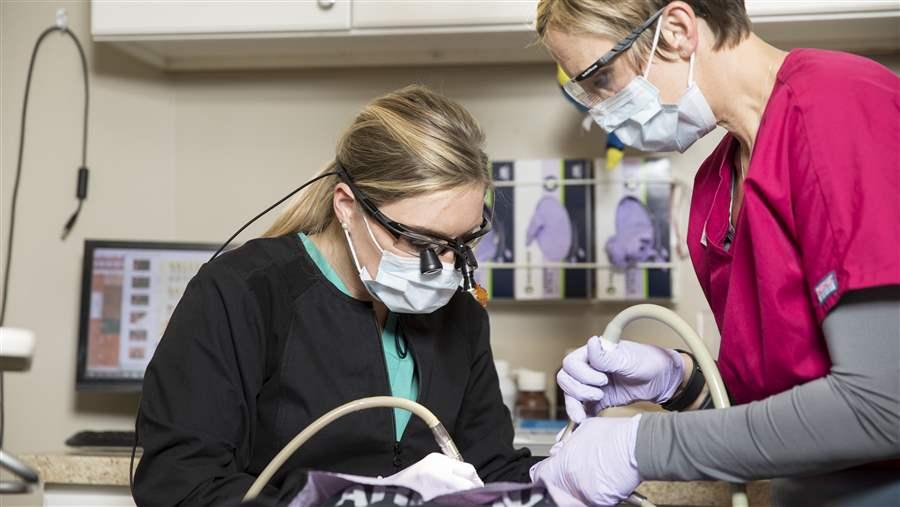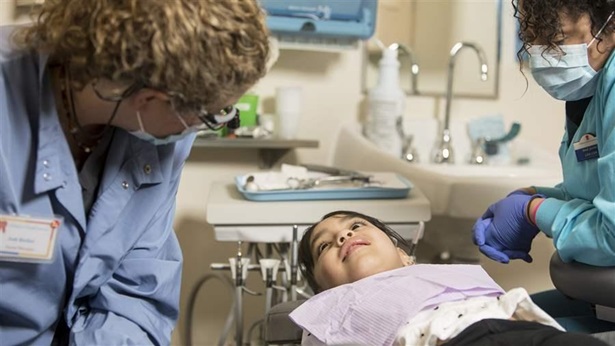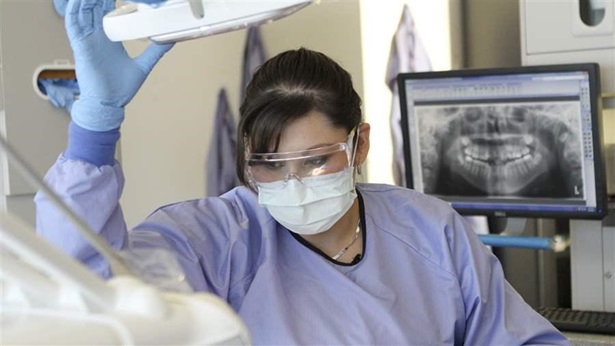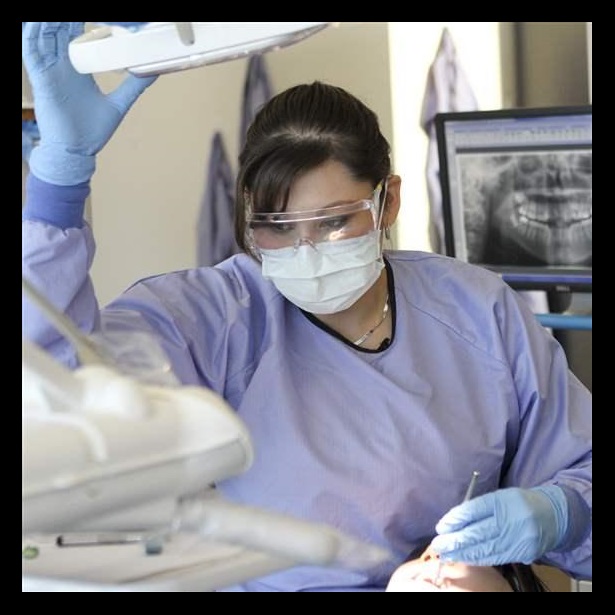Dental Therapy Helps Increase Revenue, Access to Oral Health Care
Case studies of private clinics in Minnesota demonstrate cost-effectiveness and expansion of services

Jenna Gauger, a dental therapist, and Amy Thorp, a dental assistant, perform dental services on Journey at Main Street Dental in Montevideo, Minn., on April 11, 2017.
© The Pew Charitable TrustsNote: This analysis was updated on July 18, 2017, to clarify that the funder of the case studies was Delta Dental of Minnesota Foundation.
Two recent case studies show that the addition of dental therapists at two private, for-profit clinics in Minnesota helped increase access to oral health services for low-income and underserved residents while providing quality care and significantly increased cost-efficiency. In 2009, Minnesota approved legislation authorizing the statewide use of dental therapy. State dental therapists must work in practice settings that serve low-income and underserved people or in areas designated by the federal government as a “dental health professional shortage area” (DHPSA).
The case studies assessed the contribution of dental therapists at Midwest Dental and Grand Marais Family Dentistry. These two private, for-profit clinics are located in rural areas of Minnesota (Renville and Grand Marais, respectively) that are designated as DHPSAs.
The results show that the clinics were able to serve more patients with public insurance after hiring dental therapists. Further, the dental therapists generated positive financial returns. The net benefit of hiring a dental therapist for Grand Marais Family Dentistry was 13 percent of its average monthly revenue; for Midwest Dental, it was 2.4 times the average monthly revenue. Dental therapists increased the clinics’ productivity because they focus on routine restorative procedures, allowing dentists to work on more complex and higher-fee procedures.
Patients reported high satisfaction with the quality of care, technical skills, and chair-side manners of the dental therapists. Similarly, staff from both clinics reported positive collaboration and relationships with the dental therapists.
These studies contribute to the growing evidence that dental therapists provide high-quality, cost-effective care, are well received by patients, are appreciated and respected by their dental team peers (including their supervising dentists), and increase access to care. The studies were commissioned by Delta Dental of Minnesota Foundation and evaluated by Wilder Research based on clinic service, financial data, patient surveys, and key informant interviews with dentists, administrative staff, and dental therapists.
John Grant directs The Pew Charitable Trusts’ dental campaign, and Rebecca Singer Cohen is a research officer.










